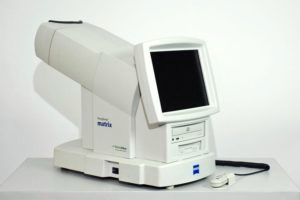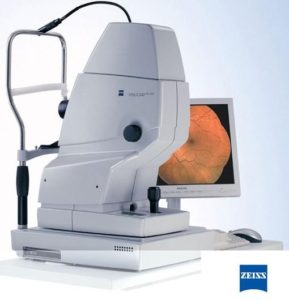It’s no secret that vision changes as people age. Seniors need to take extra special care of their vision, as there is a host of age-related vision problems and diseases that they are at risk for. As vision patients reach age 60 and beyond, they become at greater risk for developing conditions like macular degeneration, cataracts, glaucoma, and even dry eye. Regular visits to a Oakland eye doctor can help identify complications in their earliest stages and also make it possible to treat them sooner. With early treatment, many seniors can reduce their risk for total vision loss and maintain healthy eyes and vision for life.
| Did you know…that seniors are more likely to experience visual impairments when driving – especially at night? Often, seniors suffer loss of peripheral vision or develop cataracts that distort oncoming headlights and street lights. For safer driving, the American Optometric Association recommends limiting vehicle usage to daytime hours only, as well as reducing overall speed when driving. |
Frequently Asked Questions
I just celebrated my 60th birthday. Should I get a senior eye exam?
Yes. Eye exams are more important than ever during the senior years. You should be getting a comprehensive eye exam at our Oakland office at least once per year or more if recommended by your eye doctor. Also, do not hesitate to make an appointment before your next annual appointment if you notice any changes to your vision.
What should I expect at a senior eye exam?
Your senior eye exam will be much like the exams you’ve had for years. It will consist of a number of screenings, including tests for your visual acuity, peripheral field vision, and color distinction. Especially important is the retinal exam, which can help identify the development of a number of vision and health complications.


Is there anything that I should be doing between exams?
Aside from practicing safe driving habits, it may help to supplement your vision with magnifiers and vision enhancers if you are experiencing difficulty with your sight. If your Oakland eye doctor has prescribed corrective lenses, be sure to wear them as directed – especially when driving, exercising, or walking. You may also find that using products with large type, such as phones and watches, is helpful for managing day-to-day activities.

